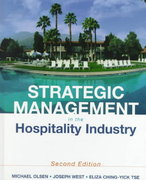Question
U = 100 Capital Budgeting Analysis Use your company's expected return as the cost of equity capital (that is the required expected return on the

U = 100
Capital Budgeting Analysis
Use your company's expected return as the cost of equity capital (that is the required expected return on the stock in the market from c.1) as the required return (or discount rate) to evaluate the following capital budgeting proposal for your company:
A proposal to spend $2.1 billion to construct production operations in an existing empty building (owned by your company along with the land) is being contemplated to produce a new product (the existing building has been depreciated to a value of $0, but the land has a current book value of $35 million; the land together with the existing empty building could be sold for $35 million today). The $2.1 billion factory investment is expected to last 25 years (but can be completely depreciated immediately for tax purposes), and it along with the land is expected to be sold for $200 million at the end of the 25-year useful life. The factory is expected to produce 110,000+100
Units = 110,000+100
units per year that are forecast to be sold for a price of $29,900 each. Variable costs (production labor, raw materials, marketing, distribution, etc.) are predicted to be $26,300 per unit. Fixed costs (administration, maintenance, repairs, utilities, insurance, real estate taxes, etc.) are expected to be $76+U million per year.
= 76+100= $176million per year
The tax rate is 21%. The project will require $89 million in inventory (raw materials and finished products) as well as $62+U million in receivables (credit for customers).
U = 100: Invest $62+100 = $162million in receivables
An extra $10+U million in cash (i.e., precautionary bank deposits and short-term marketable securities held as liquidity reserves)
$10+100 = $110 Million invested in Cash
is required as a safety stock to provide financial flexibility (that enables avoiding running out of cash in case of temporary declines in operating cash flows). Suppliers (companies which sell the parts and raw materials that are used in the production of the 110,000+U units produced by the factory) are expected to provide short-term trade credit that is expected to sum to $98 million in accounts payable while short-term accrual financing of $46 million is supplied by the employees (who don't get paid until the end of the month)
Units = 110,000+100 = 110,100
= 95+43-98 = net working capital = 162+110-176
- Compute the NPV based on the above initial forecasts
- Compute the IRR
- Indicate the change in shareholder wealth (i.e., the increase or decrease in the company's equity market capitalization) that would occur as a result of undertaking this project
- Determine if the project should be undertaken
- Compute the Payback Period (and reevaluate the project if the company requires a Payback Period of 7 years)
- Compute equivalent annual cash flow (EAC) of the project evaluated in d.1 and compare that to another project involving the manufacture of a mutually exclusive alternative product that has been developed and that would have an annual EAC of $42 million if it were put into production (using a factory that would last 15 years before being replaced) and re-evaluate the project in d.1 in a recurring context.



Step by Step Solution
There are 3 Steps involved in it
Step: 1

Get Instant Access to Expert-Tailored Solutions
See step-by-step solutions with expert insights and AI powered tools for academic success
Step: 2

Step: 3

Ace Your Homework with AI
Get the answers you need in no time with our AI-driven, step-by-step assistance
Get Started


